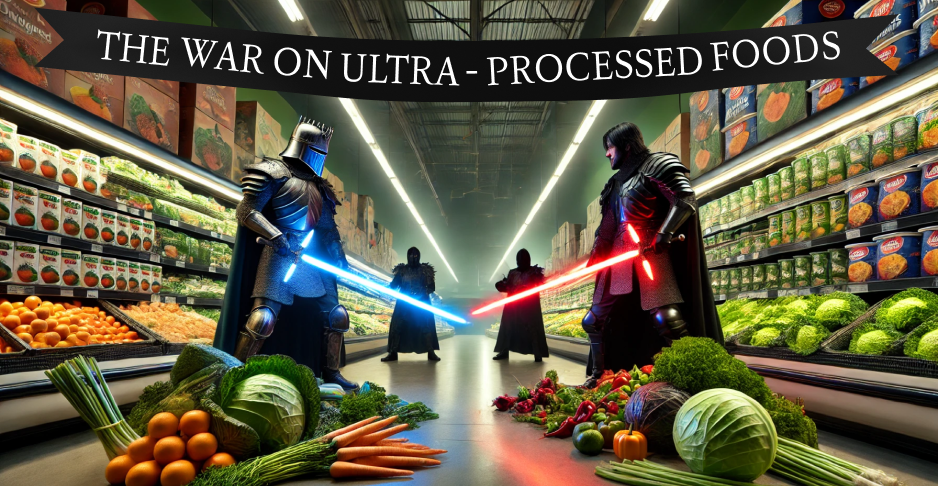Robert F. Kennedy Jr.’s confirmation as Secretary of Health and Human Services (HHS) is set to shake the grocery industry to its core. A long-time critic of ultra-processed foods, RFK has promised to bring the U.S. food system in line with European standards—where only 400 food additives are permitted, compared to the 10,000 allowed in the U.S.
But this isn’t just another regulatory shift. For the first time in U.S. political and bureaucratic history, the HHS Secretary is not only backed by the President and Senate but is also leading a movement of millions of citizens—especially health-conscious moms—who demand real change. This grassroots force, fueled by the Make America Healthy Again (MAHA) movement, is laser-focused on reshaping America’s food landscape.
For grocery stores and food brands, this means one thing: adapt or be left behind.
The Trenches of the Ultra-Processed Food Battle
RFK and the MAHA movement are taking direct aim at grocery store aisles filled with ultra-processed, chemical-laden foods. He has specifically called out major brands like Lucky Charms for using artificial colors and additives in U.S. products while selling naturally formulated versions overseas.
This time, it’s not just government oversight pushing for change—it’s a massive, organized consumer movement that won’t back down.
Here’s what’s coming and how brands and grocery stores need to prepare:
1. Reformulation is No Longer Optional
Brands will be forced to remove or replace controversial ingredients—artificial colors, emulsifiers, and preservatives—with natural alternatives. The pace of change will need to accelerate, as RFK’s HHS will push for tighter food safety regulations. Companies that innovate quickly will have the first-mover advantage.
2. Turn Labels into Love Letters
Ingredient lists are no longer fine print—they’re credibility tests. With health-conscious moms scrutinizing every additive, brands must adopt European-style “clean labeling.” Think “free-from” claims, simplified terminology, and certifications (e.g., “Non-GMO Project Verified”). Retailers like Kroger and Albertsons are already prioritizing brands with transparent labels; under RFK, this will become table stakes.
3. Advertising and Store Signage Must Shift
Grocery stores and brands can no longer rely on packaging alone to communicate food safety. Expect an industry-wide shift where in-store digital screens, advertisements, and direct-to-consumer messaging play a crucial role in showcasing why certain foods are safe and better for health. Retailers and brands will need to invest in new, innovative communication strategies to retain shopper trust.
4. Grocery Stores Must Curate Their Shelves
Retailers will be under pressure to phase out certain ultra-processed products entirely. This will require close collaboration between grocery chains and brands to ensure compliance with upcoming food safety standards while still meeting customer demand. The stores that lean into this shift—promoting cleaner, healthier alternatives—will maintain consumer loyalty.
5. A New Grocery Landscape is Emerging
The grocery aisle is set to be the frontline of RFK’s war on ultra-processed foods. But this time, it’s not just policymakers driving change—it’s millions of consumers, particularly MAHA moms, who are demanding better food options for their families.
Brands and retailers must not only adapt but also actively communicate their commitment to health and safety. This is more than a policy shift—it’s a consumer revolution.
6. Appease the Mom Army
Health-conscious mothers aren’t just a demographic—they’re a political force. Brands that engage them early (e.g., via social media polls on ingredient preferences, mom blogger partnerships, or “bring your child to the lab” transparency tours) will earn loyalty. Retailers, meanwhile, can host “clean food” workshops or use VSTR’s screens to showcase mom-approved products. Ignore this cohort, and risk boycotts gone viral.
7. Don’t Hack (aka Lobby) the system – Might not work this time.
And a bonus one, in case you haven’t already figured. RFK specifically campaigned on eliminating the conflicts of interest between food manufacturers and regulating agencies under the HHS. So while we can try – relying on lobbying as the sole change maker might not work as well this time. With that said, Will your brand or store evolve fast enough to meet this moment?
Join the discussion – Signup up here.

